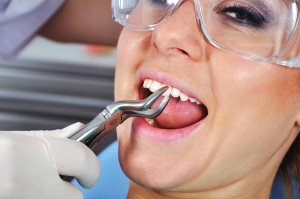Primary Reasons For Tooth Extractions
 For many individuals, a tooth extraction can be a traumatic experience. However, the dentists here at Community Dental Group always strive to make the experience as pleasant as possible. Whether or not sedation is required depends entirely on the individual and their state of mind regarding the procedure. Here are some considerations to be aware of where having a tooth extracted is concerned.
For many individuals, a tooth extraction can be a traumatic experience. However, the dentists here at Community Dental Group always strive to make the experience as pleasant as possible. Whether or not sedation is required depends entirely on the individual and their state of mind regarding the procedure. Here are some considerations to be aware of where having a tooth extracted is concerned.
Reasons For A Tooth Extraction
There are a number of reasons why the dentists at Community Dental Group will recommend having a tooth extracted. Here are the most common reasons:
- Infections – when tooth damage or decay extends into the pulp, bacteria oftentimes follows and an infection eventually results. There are two options for preventing the spread of the infection. We will either perform a root canal or simply extract the tooth.
- Reducing infection risk – if you have recently undergone an organ transplant procedure or are receiving chemotherapy, your immune system has been compromised. In this situation, the mere risk of infection may warrant the extraction of the tooth.
- Too many teeth in your mouth – this is more commonly referred to as a “crowded mouth” and is a condition that needs to be corrected prior to undergoing an alignment of the teeth.
In addition to these three reasons, we will recommend extracting a tooth as a part of treating periodontal (gum) disease or when there has been a traumatic mouth injury.
What To Expect
If you have been scheduled for a tooth extraction here at Community Dental Group, your comfort is our primary concern. Depending on the number of extractions that must be performed, you may be comfortable with the administration of a local anesthetic. However, if multiple extractions are required, we may recommend administering a stronger, general anesthetic in order for you to be more comfortable during the procedure.
Once the procedure is complete, your dentist will pack the empty socket with gauze in order to stop any bleeding that commonly occurs. Depending on the extent of the procedure, a few stitches may also be required. Additionally, your dentist may prescribe a low-grade analgesic (painkiller) in order to help you manage any pain or discomfort you are experiencing. If so, be sure to follow the dosage instructions closely.